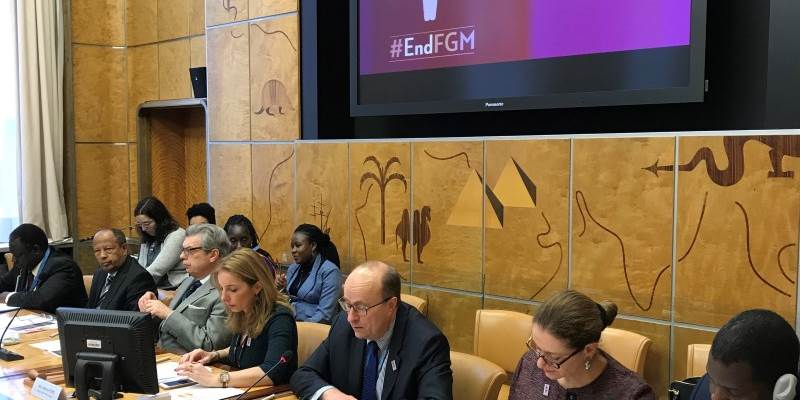Eradicating FGM continues to be a key policy priority for Norway. On the 6th of February, Ambassador Hans Brattskar, Norway’s Permanent Representative to the UN, opened a session highlighting the 15th Anniversary of the “International Day of Zero Tolerance for Female Genital Mutilation” at the United Nations in Geneva.
The event was organised by the UNFPA, UNICEF, IAC, OHCHR and WHO with support from Norway, Burkina Faso, Ethiopia, Italy, Netherlands, Portugal, United Kingdom, the EU and UN Women.
Importance of community engagement
Norway reiterated its strong and enduring commitment to end the harmful practice. Globally 200 million girls has suffered from some kind of exposure to FGM treatment. More than 3 million girls are at risk of FGM every year, a number that is projected to increase to 4.6 million by 2030.
Ambassador Brattskar stressed that FGM constitutes “a grave violation of human rights and represents an extreme form of discrimination against women”. He also noted that FGM has serious consequences for women’s and girls’ lives and sexual and reproductive health, including mental health.
Several affected countries stressed the need for increased community engagement to challenge harmful social norms and attitudes. They noted that although criminalisation is important, it will not solve the problem in itself. The countries stressed the importance of community engagement, as FGM continues to occur in isolated tribes or small communities, despite national prohibitions.
Many panellists also highlighted that women and girls must be empowered and gain a stronger voice at the local and national level.
The Deputy Permanent Representative of Sudan in Geneva reported a positive improvement in working against FGM norms. From having been considered a socially accepted medical practice in 2004, he said, it has now become an unlawful practice.
Similarly, in Mali, national assembly discussions on FGM have shown promising signs in the fight against FGM, according to Malian parliamentarian Fatimata Niambali, who participated in the discussions via video-link.
Norwegian policy priority
Norway recognised the importance of country leadership with support from the international society.
Better education is important, as men generally know too little about the issues. Information campaigns and engagement with governments, law enforcement, health practitioners and religious leaders have proven effective means to stop FGM.
To find a global solution requires that states, national authorities, politicians, civil society, health professionals and religious leaders work together to end the practice.
One girl subjugated to FGM is one girl too many. Ending FGM remains a political decision. It has no health benefits, but causes only harm.
For more information: http://www.unfpa.org/female-genital-mutilation
